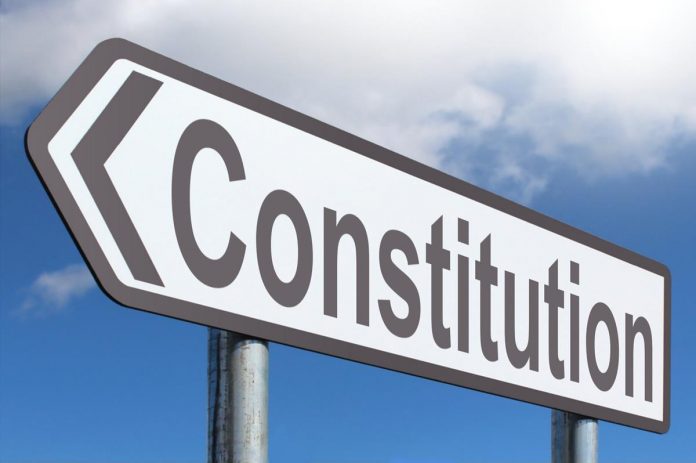This article has been written by Devansh Singh pursuing Diploma in Advanced Contract Drafting, Negotiation and Dispute Resolution and has been edited by Oishika Banerji (Team Lawsikho).
This article has been published by Sneha Mahawar.
Table of Contents
Introduction
Judicial review is the process of examining the constitutionality of any law passed by the Parliament. If the law passed is found to be violating or infringing the provisions of the Indian Constitution, then either the high courts or the Supreme Court of India can declare them as void thereby not allowing them to be enforceable. John Marshall, an American politician and lawyer, had created the concept of judicial review. In India, the principle of the rule of law is followed and the Indian Constitution is considered to be the supreme law of the land. Laws made are to be in consonance of the basic structure of the Constitution and not in abeyance of it, for the latter gets nullified ipso facto. Although one cannot find any express mentioning of the term ‘judicial review’ in the Indian Constitution, there are several provisions of the Constitution that makes a reference or hints on the concept. Whenever we talk about judicial review, the two significant functions that need to be looked into are:
- Legitimation of the government actions.
- Safeguarding the Constitution from being encroached upon by the government. has two important functions to look upon.
This article discusses the concept of judicial review with respect to the Indian Constitution in detail.
Importance of judicial review
Judicial review is necessary because it protects the fundamental rights of the citizens and the residents that have been laid down under Part III of the Indian Constitution thereby maintaining the supremacy of the Constitution and restricting the legislature and the executive from misusing their vested powers. Judiciary’s power to examine executive actions and legislative enactments is what judicial review is inclusive of. The importance of judicial review can be understood in the following ways:
- Practising judicial review helps in distributing the power between the Union and the states.
- It ensures that the judiciary is independent as it works independently thereby also clearly defines the functions of every organ of the government.
- It protects the fundamental rights of the citizens guaranteed by the Indian Constitution.
Elements of judicial review
Both the Supreme Court and the high courts have the power to exercise this judicial review under Articles 32 and 226 respectively. While Article 32 provides that a person can approach the Supreme Court for any violation or infringement of his or her fundamental rights, Article 226 clearly states that a person can approach high courts on similar grounds. Judicial review can be done over laws formulated by both the state and the Center.
Article 32 of the Indian Constitution
Article 32 of the Indian Constitution guarantees individuals the right to constitutional remedy, by means of which they can approach the Supreme Court of India, in order to seek justice, in cases where they have been deprived of their guaranteed fundamental rights. The Apex Court is vested with the power to order directions that will aid in enforcing the deprived rights thereby restoring them as well. Article 32 of the Indian Constitution is therefore also recognised as the protector and guarantor of fundamental rights.
It is ideal to note that the Indian Constitution provides for 5 types of writs that can be issued by the courts as a consequence of a petition filed under Article 32. They are the writ of Habeas Corpus, Mandamus, Certiorari, Quo Warranto and Prohibition. The constitutional remedies provide the citizens with equipped means of restoring their infringed rights. It is ideal to note that the writ jurisdiction that the Constitution confers, comes with prerogative powers and although discretionary, are unbounded in its limits. On the basis of the same, it is clear that the constitutional system does not entertain the presence of arbitrary powers. Therefore, whatever decision is taken by the Apex Court when approached by Article 32, the same must be based on sound reasoning.
Article 226 of the Indian Constitution
The specialty of Article 226 when compared with Article 32 is that while the latter solely deals with fundamental rights violation, the former can also deal with questions of law alongside fundamental rights. Although exercising its vested power under Article 226 is discretionary for the high courts, such discretion deserves sound judicial reasoning. It is also necessary to note that while high courts exercise their power under the discussed provision, the court is duty-bound to take into consideration that the petitioner who approached them, had no alternative remedy to resort to other than the one provided under Article 226.
The Rajasthan High Court has rightfully observed that the power of judicial review that has been vested upon high courts, under Article 226 of the Indian Constitution, is to be considered as one of the fundamental features of such Constitution and no legislation can have room for overriding such vested jurisdiction from the high courts while deciding the case of LNJ Power Ventures Ltd. v. Rajasthan Electricity Regulatory Commission and Ors (2022).
Functions of judicial review
The main function of judicial review is to explain the laws made by the legislature. The judicial review ensures that the law that is passed is not violating the provision of the Indian Constitution. It reviews the law which had been passed by the legislative and executive wings of the government. Judicial review also delivers justice to all citizens of a country and therefore can be termed as the guardian of the Constitution.
Grounds for judicial review
The grounds of judicial review are:-
(1) Jurisdictional Error – It actually happens when a complaint has wrongfully been addressed by the court. The court has no authority to do so. This error can be addressed by issuing a “Writ of Certiorari”.
(2) Irrationality – It is also known as “Wednesbury unreasonableness”. In this, no decision maker comes to the same decision. They fail to consider relevant matters.
(3) Procedural Impropriety – It is a failure to comply with the laid down procedures. It actually consists of two areas, namely, failure to observe the rules and to observe the fundamental rule of justice.
Types of judicial review
Judicial reviews are of three types, namely-
(1) Legislative decision – Judicial review for legislative decisions means that whatever law is passed by the legislative organ of the government, the same must follow the provisions of the Constitution. It should not disrespect or disobey any provisions of the Constitution.
(2) Administrative decision – Judicial review for administrative decisions means that the court has the power to review an action of legislature and executive. If their actions are found to be in violation of any of the provisions of the Constitution, then they will be declared as void. Therefore, their actions should follow the provisions of the Constitution.
(3) Judicial decision – Judicial review of judicial decisions signifies higher courts overviewing the decision passed by the lower courts without intervening in their functionality. The same is required for the efficient functioning of the Indian judiciary.
Procedure for judicial review in India
The phrase “procedure established by law”, as provided under Article 21 of the Indian Constitution, serves as the governing principle for the concept of judicial review. This principle actually means that the law which has been enacted by the legislature is valid or has a legal effect only when the correct procedure is followed. There is a test of constitutionality that the law has to pass and if the law passes that test then only can it be an enforceable law.
Limitations of judicial review
Judicial review is only limited to higher courts like the Supreme Court and high courts, not to the lower courts. Judicial review can neither interrupt any political questions nor any policy matters. Judicial review just reviews the law that had been made. It does not make or implement the laws as this power is vested with other organs of the government. It also limits the functioning of the government.
What is the current scenario of judicial review in India
The present series of cases that are approaching before the Indian courts, where they are being asked to exercise the power of judicial review, have seen a trend in the courts to step back from the same, owing to avoidance of judicial encroachment. The Himachal Pradesh High Court while deciding the case of Santosh Nanta vs State of H.P. & Ors. (2023), has observed that judicial review if exercised in overlooking any decision that is made by expert domains of a selection committee for a reasoned selection process to be carried out, would be considered to be tantamount to treading on a thin sheet of ice and therefore, judicial interference should be avoided.
Further, the Andhra Pradesh High Court, while deciding the case of Nallacheruvu Obulesu v. State of Andhra Pradesh & ors (2023), has observed that courts’ power to exercise judicial review in cases of dispute originating from tender invitation conditions, stands limited. This is because, the terms and conditions of the tender are directed by the government, who after bearing a mindful nature and reasoned decision while prescribing the same. The authority who calls for tender is considered to be the appropriate judge in the same, and questioning his decision is ipso facto unrequired interference in his functioning by the court. Thus, it is not for courts to conclude as to whether the conditions that the tender carries are good or bad.
These decisions reveal that the judiciary itself has been conscious enough while exercising the discretionary power of judicial review thereby avoiding judicial overreach in its best terms.
Conclusion
Judicial review is the most important and powerful tool provided in the hands of senior courts by the Indian Constitution. It keeps a check on the other organs of the government so that they function properly without unnecessary interference. Thus, judicial review stands as a requirement for time immemorial and is also considered to be the basic structure of the Indian Constitution.
Students of Lawsikho courses regularly produce writing assignments and work on practical exercises as a part of their coursework and develop themselves in real-life practical skills.
LawSikho has created a telegram group for exchanging legal knowledge, referrals, and various opportunities. You can click on this link and join:
Follow us on Instagram and subscribe to our YouTube channel for more amazing legal content.
 Serato DJ Crack 2025Serato DJ PRO Crack
Serato DJ Crack 2025Serato DJ PRO Crack












 Allow notifications
Allow notifications


